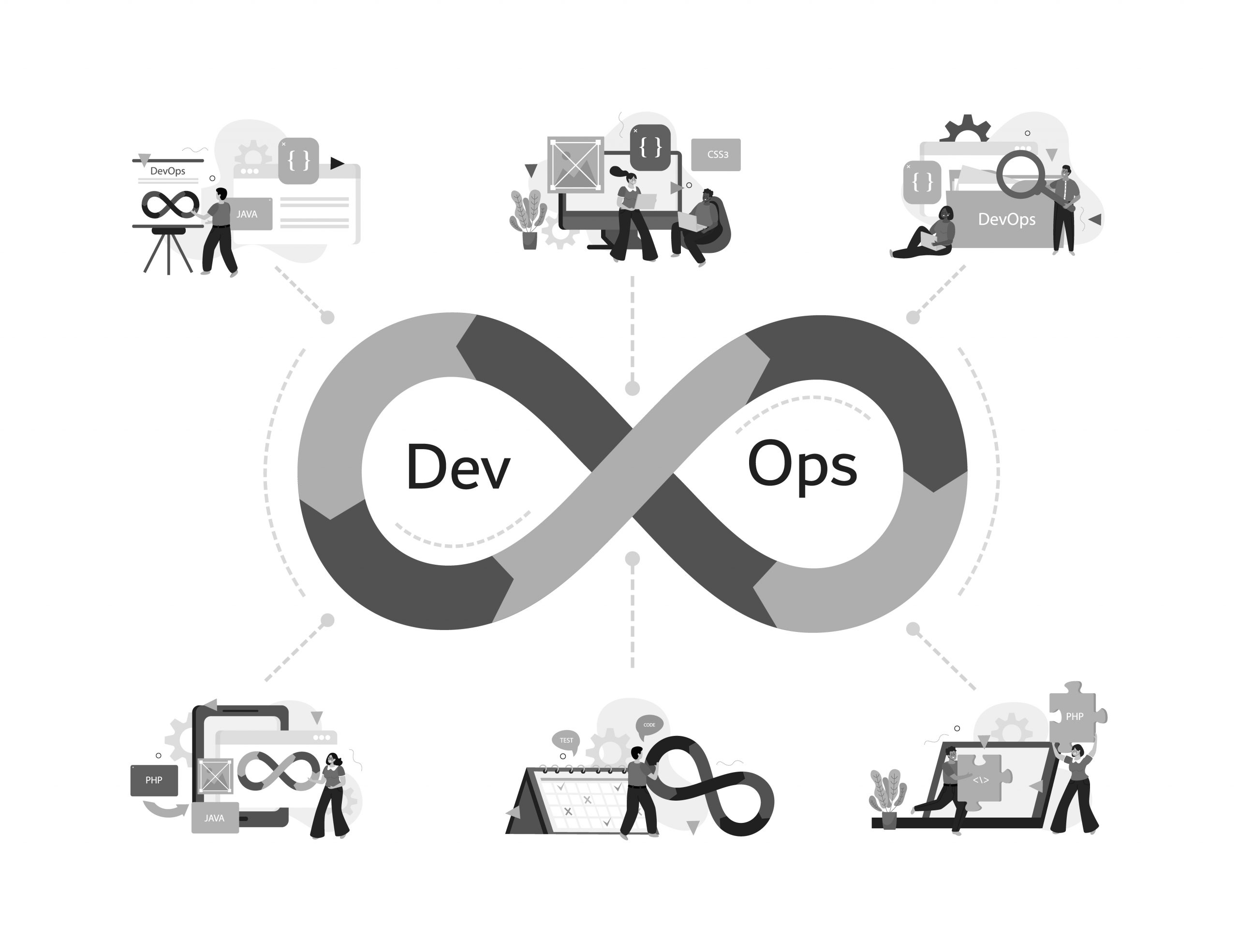
30 Aug Importance of DevOps in software development
In recent years, DevOps has become an essential practice for software development teams seeking efficiency, speed, and quality.
But what is DevOps, and why is it so important in today’s software development landscape?
Let’s explore these points and understand how DevOps can transform the way software teams operate.
What is DevOps?
DevOps is a combination of the words “development” and “operations.” It represents a culture and a set of practices aimed at integrating and automating processes between software development teams and IT operations.
The goal of DevOps is to accelerate the delivery of high-quality software by promoting closer collaboration between developers, operations engineers, and other stakeholders.
Key benefits of DevOps
Adopting DevOps practices brings several benefits to organizations developing software. These benefits reflect both the quality of the delivered software and the efficiency of the development process. Below, we detail some of the main benefits.
Faster delivery speed
One of the most evident advantages of DevOps is the faster delivery of software. By automating processes and promoting continuous collaboration between teams, DevOps enables new features and bug fixes to be implemented more quickly.
This is particularly important in a competitive market, where time to market can be a differentiator.
Improvement in software quality
With DevOps, continuous integration and continuous delivery (CI/CD) become possible. These practices allow code to be tested and validated constantly, ensuring that errors are detected and corrected early.
As a result, the delivered software tends to be of higher quality, with fewer bugs and performance issues.
Greater operational efficiency
DevOps automates many tasks that would traditionally be done manually, such as infrastructure provisioning, environment configuration, and code deployment.
This reduces the time spent on repetitive tasks and allows teams to focus on activities that add more value to the product.
Better collaboration between teams
One of the foundations of DevOps is collaboration between development and operations teams. Instead of working in silos, these teams start collaborating continuously, sharing knowledge and responsibilities.
This integrated approach reduces friction and misunderstandings, resulting in a smoother development process.
Risk reduction
DevOps also contributes to reducing risks associated with software development. With automated testing and continuous integration, it is possible to detect problems earlier and fix them before they become critical.
Additionally, the ability to deploy small changes incrementally and safely reduces the risk of major production failures.
Challenges in implementing DevOps
Despite the benefits, implementing DevOps is not without challenges. It is important to be aware of these challenges to overcome them and ensure a successful transition to this new way of working.
Organizational culture
One of the main challenges in adopting DevOps is the cultural shift required within the organization. Traditionally, development and operations teams have distinct and often conflicting roles. Implementing DevOps requires a mindset shift, where everyone involved sees development and operations as shared responsibilities.
Process automation
Although automation is one of the pillars of DevOps, implementing it effectively can be complex. It involves selecting the right tools, integrating with existing systems, and creating scripts and pipelines that automate development and operations processes.
All of this requires time, effort, and, in some cases, additional training for the team.
Security and compliance
The introduction of automation and continuous integration can bring new challenges in terms of security and compliance. It is crucial to ensure that DevOp practices include security measures from the outset and that all processes comply with applicable standards and regulations.
Best practices for implementing DevOps
To overcome challenges and fully leverage the benefits of DevOps, it’s essential to adopt some best practices. Here are a few key ones:
Start small
When implementing DevOps, it is advisable to start small. Choose a pilot project or a specific part of the development process to introduce DevOps practices. This allows the team to learn and make adjustments before scaling up across the organization.
Invest in automation
Automating as much as possible is essential for DevOps success. This includes test automation, continuous integration, continuous delivery, and even infrastructure automation. Tools like Jenkins, Docker, and Kubernetes are widely used to facilitate these processes.
Focus on a culture of collaboration
DevOps isn’t just about tools and processes; it’s also about culture. Promoting a culture of collaboration and open communication between teams is crucial for success. Encourage knowledge sharing and cooperation between development and operations teams.
Monitor and continuously improve
Implementing DevOps should be seen as an ongoing process. Continuously monitor the performance of processes and always look for ways to improve. Use metrics and feedback from teams to identify areas for improvement and adjust DevOps practices as needed.
DevOps plays a crucial role in modern software development. By integrating development and operations, automating processes, and promoting a culture of collaboration, organizations can accelerate the delivery of high-quality software, improve operational efficiency, and reduce risks.
While implementing DevOps may present challenges, the benefits far outweigh the difficulties. With the right practices and tools, teams can transform the way they develop and operate software, achieving significant results.





Sorry, the comment form is closed at this time.